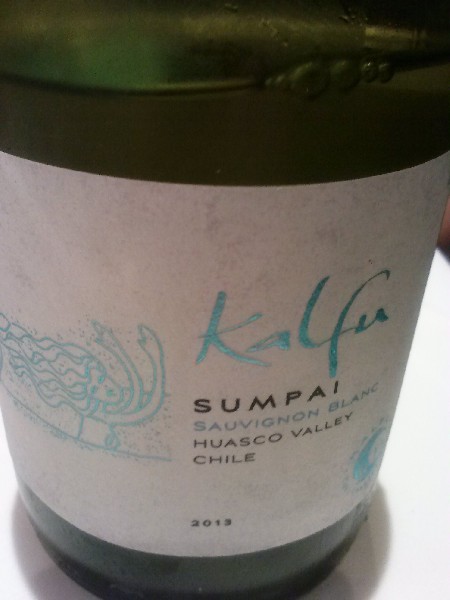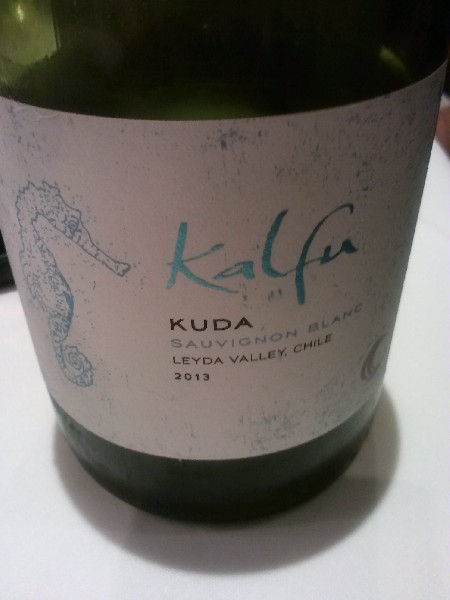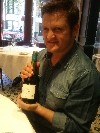KALFU Wines
From the Coast of Chile
By: Philip Kampe - Sep 29, 2014
Recently we enjoyed a luncheon at Carbone restaurant in Greenwich Village. It is normally booked weeks in advance. The main reason, of course, is the exceptional food.
My primary interest at the luncheon was not dining, but, the newly released Chilean coastal wines from Vina Ventisquero.
Most recently, Chile has undergone a viticultural transformation. High technology coupled with innovative wine makers who are willing to take a risk has paid dividends. Wines of high quality at affordable prices now exist.
Chile is an isolated wine region, protected by the Pacific Ocean to the west and the Andes mountains to the east. The isolated conditions with its environmentally protected land are ideal for consistent grape growth yearly, which is unheard of in the other wine regions of the world.
Take, for example, the wines sampled at Carbone with winemaker Alejandro Galaz. His reputation is known worldwide as the winemaker who specializes in cool climate wines. According to Alejandro Galaz, “from the vineyard to the bottle, producing cool climate wines can be challenging…but, I enjoy a challenge…always striving to produce wines that are a sincere expression of elegance, distinction and subtlety of the grape”.
He was quick to add that the wines we were tasting from the KALFU collection, are also sustainable. In fact, Vina Ventisquero has been awarded the first of its kind certification as the only winery in Chile to have all of its vineyards certified 100% sustainable by Wines of Chile.
The mystery of the wines we were going to sample unfolded, as our first course was served. Alejandro explained that the Kalfu Sauvignon Blanc is a 2013 Kuda Sauvignon Blanc from the granite-ladden, loamy clay region of the Leyda Valley. The hand-picked grapes were harvested early in the morning and transported to the vineyard where the best grapes were selected for 12-14 hour maceration. After fermentation the grapes were aged on lees for three months followed by battonage
2013 Kuda Sauvignon Blanc:
Aroma> Obvious pineapple, grapefruit, herby, citrus scents with a mineral overtone.
Palate>>Crisp acidity with a summer freshness that was clean, citrusy and well balanced.
Alcohol>13.2%
Ageing>Up to four years in ideal conditions.
Price: $18
Distributor>> Aviva Vino
The second wine poured at the meal was another Sauvignon Blanc, the 2013 Sumpai. Galaz explained that the grapes for this wine are from two distinct yet different areas in Chile. The first area is located 15 miles from the Pacific Ocean in the Longomilla district in the Huasco Valley. The soil is an alluvial chalky mix of clay and sand.
The second Sauvignon Blanc grape comes from the cool climate Nicolasa section, also located near the Pacific Ocean. The grapes from both areas are hand-harvested in the early morning hours and then transported to the vineyard. The 2013 harvest was marked by cooler than usual weather conditions paired with constant sea breezes. There was little rain during the ripening period, helping create a healthy and vibrant crop.
Initially, the must underwent a cold maceration for 6-8 hours, protecting it from the air. Slow, constant cold temperature fermentation draws out the aromas and expressions of the wine. Fermentation takes place for five months over lees followed by battonage.
2013 Sumpai Sauvignon Blanc
Aroma> Mineral overtones laden with wet, chalky, peppery aromas abound.
Palate> Concentrated, complex, well-balanced wine with a crisp apple tart citrusy structure and a long, acidic finish.
Alcohol> 13%
Ageing> Up to five years in ideal conditions.
Price> $22
Distributor> Aviva Vino
According to Galaz, the Nicolasa vineyard in the Huasco Valley is located in the world’s driest desert, the Atacama Desert. It is only 13 miles from the Pacific Ocean. The vines are influenced by the waters of the Huasco River, salty soils, cool coastal breezes, chilly nights, fast winds and long desert summers, resulting in unique conditions for grape maturity. Contrast that to the Leyda Valley, which is located only 4 miles from the Pacific Ocean and close to the Maipo River. The vines face the ocean with its morning fog and cooling breezes.
Both wines were interesting and wonderful in their own way. The Kuda 2013 was crisp and acidic, a perfect wine for all types of seafood. I would venture to say that you could use this wine as an aperitif.
The Sumpai 2013 is an elegant, complex wine that goes beyond seafood. The perfect balance of its structure, ample minerality and chalkiness on the palate make this a wine worth remembering.



